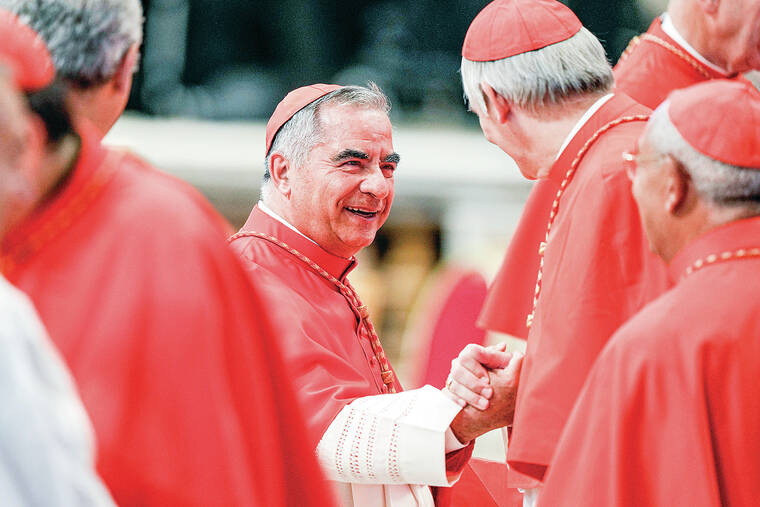VATICAN CITY — A Vatican tribunal on Saturday convicted a cardinal of embezzlement and sentenced him to 5½ years in prison in one of several verdicts handed down in a complicated financial trial that aired the city state’s dirty laundry and tested its justice system.
Cardinal Angelo Becciu, the first cardinal ever prosecuted by the Vatican criminal court, was absolved of several other charges and his nine co-defendants received a mixed outcome of some guilty verdicts and many acquittals of the nearly 50 charges brought against them during a 2½ year trial.
Becciu’s lawyer, Fabio Viglione, said he respected the sentence but would appeal.
Prosecutor Alessandro Diddi said the outcome “showed we were correct.”
The trial focused on the Vatican secretariat of state’s 350 million euro investment in developing a former Harrod’s warehouse into luxury apartments. Prosecutors alleged Vatican monsignors and brokers fleeced the Holy See of tens of millions of euros in fees and commissions and then extorted the Holy See for 15 million euros to cede control of the building.
Becciu was accused of embezzlement-related charges in two tangents of the London deal and faced up to seven years in prison.
In the end, he was convicted of embezzlement stemming from the original Vatican investment of 200 million euros into a fund that invested in the London property. The tribunal determined canon law prohibited using church assets in such a speculative investment.
Raffaele Mincione, a London-based Italian broker who managed the fund, was also convicted of embezzlement. His lawyers immediately announced an appeal, saying they were incredulous a broker who took under management Vatican funds from Swiss banks could be convicted and sentenced to 5½ years in prison over an “obscure canonical law” that Mincione said he only learned about on Saturday.
Becciu was also convicted of embezzlement for his 125,000 euro donation of Vatican money to a charity run by his brother in Sardinia and of using Vatican money to pay an intelligence analyst who in turn was convicted of using the money for herself.
The trial had raised questions about the rule of law in the city state and Francis’ power as absolute monarch, given that he wields supreme legislative, executive and judicial authority and had exercised it in ways the defense says jeopardized a fair trial.
The defense attorneys did praise Judge Giuseppe Pignatone’s even-handedness and said they were able to present their arguments amply.

